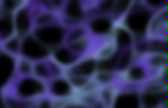

Why I Hate Reading Maps. The 10 Types of Writers' Block (and How to Overcome Them) The Thirty-Six Dramatic Situations. The Thirty-Six Dramatic Situations is a descriptive list which was created by Georges Polti to categorize every dramatic situation that might occur in a story or performance.
To do this Polti analyzed classical Greek texts, plus classical and contemporaneous French works. He also analyzed a handful of non-French authors. In his introduction, Polti claims to be continuing the work of Carlo Gozzi, who also identified 36 situations. Publication history[edit] “Gozzi maintained that there can be but thirty-six tragic situations. This list was published in a book of the same name, which contains extended explanations and examples. The list is popularized as an aid for writers, but it is also used by dramatists, storytellers and many others.
The 36 situations[edit] Each situation is stated, then followed by the necessary elements for each situation and a brief description. See also[edit] References[edit] External links[edit] Underlined Book Quotes Become Clever Illustrations. Bookworm or not, you can't help but enjoy these black and white illustrations of literary quotes by Evan Robertson.
The New York-based graphic designer has taken some of the cleverest lines written by famous authors such as William Faulkner and Oscar Wilde and turned them into wonderful posters. These literature-inspired fine art illustrations are currently being sold on Etsy under the name Obvious State. Robertson would see a "little jewel of a sentence" and he'd underline it. Then, he would take those "snippets of text and ideas" and "let the words be a springboard for an illustration.
" As he told Huffington Post, "The illustrations incorporate and interact with the text and hopefully add up to something that engages the mind as much as the eye. " Here are 12 of our favorites. Update: Check out more clever illustrations in Part II of this story. Obvious State on Etsy via [Quipsologies], [Huffington Post] Neil deGrasse Tyson Lists 8 (Free) Books Every Intelligent Person Should Read. A Reddit.com user posed the question to Neil deGrasse Tyson: "Which books should be read by every single intelligent person on the planet?
" Below, you will find the book list offered up by the astrophysicist, director of the Hayden Planetarium, and popularizer of science. Where possible, we have included links to free versions of the books, all taken from our Free Audio Books and Free eBooks collections. Or you can always download a professionally-narrated book for free from Audible.com. Details here. If you're looking for a more extensive list of essential works, don't miss The Harvard Classics, a 51 volume series that you can now download online. 1.) The Bible (eBook) - "to learn that it's easier to be told by others what to think and believe than it is to think for yourself. " 2.) 3.) 4.) 5.) 6.) 7.) 8.) Tyson concludes by saying: "If you read all of the above works you will glean profound insight into most of what has driven the history of the western world.
" Related Content: PABLO NERUDA - Love. Not knowing by A M T. 10 Essential Books for Book Nerds. What makes a book nerd? Reading a lot of books — and liking to talk about said books — is a major requirement, of course, but there’s often something a little more nebulous involved: book nerds are the kinds of people who get a little thrill when walking into a bookstore, who press volumes into their friends’ hands with serious promises of life changing moments, who are fascinated by following the many tangled threads through authors and literature, happily wandering wherever they might lead.
Robin Sloan’s recently published Mr. Penumbra’s 24-Hour Bookstore is a book for such people — if you can’t already tell from the title. If you count yourself among them (or are looking for a gift for the same), we’ve put together a list of books you might want to consider taking a look at. Click through to read through our list of essential books for book nerds — and since you’re probably not a true book nerd if you’re satisfying with ten, add your own picks to our list in the comments! Mr. Love.jpg 390×500 pixels. THE SUMMER OF 1967, with its "Love-Ins," "Be-ins," and "Flower Power," came to be known as "The Summer of Love," and was one of the seminal moments of our generation.
Over thirty years later, we who came of age during the turbulent decade of the sixties are dismayed to realize that, to the young adults of today, those years are now ancient history. The "Psychedelic Sixties" broke the rules in every conceivable way from music to fashion (or lack of it), to manners and mores. Boundaries were challenged and crossed in literature and art; the government was confronted head-on for its policies in Vietnam; the cause of civil rights was embraced by the young; and mind-expanding drugs were doing just that. Were the sixties the best of times or the worst of times? Did America evolve as a nation and we as individuals? Are we better for the experience? We who were there have our own answers, but it is the historians who will write the collective answers for posterity.